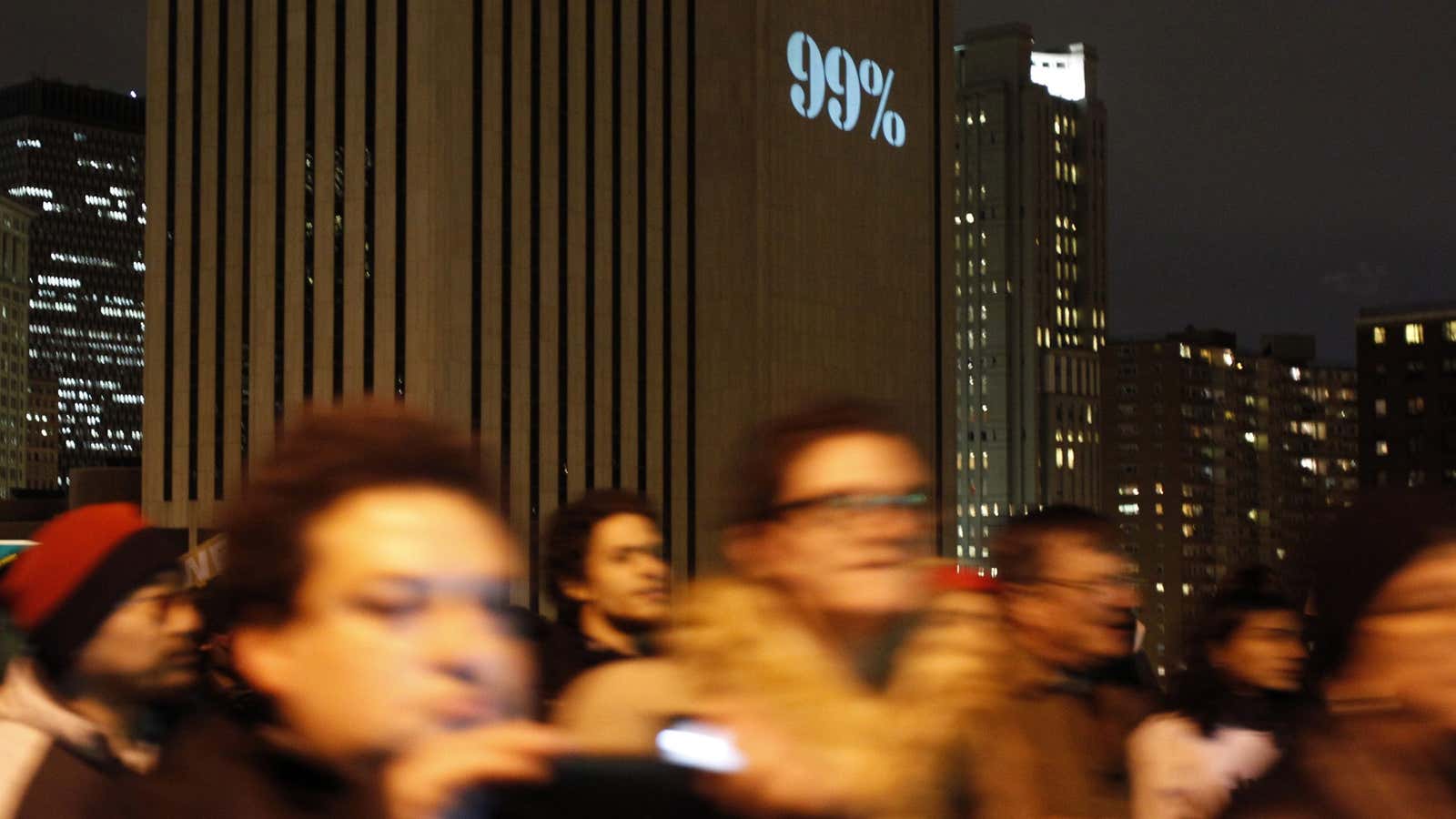The public outrage over bailouts of giant companies during the 2008 financial crisis may have actually forced elites to share some of the burden, as governments hiked tax rates on the rich, according to a new paper.
Countries that suffered a banking crisis increased tax rates on the highest earners by 3.7 percentage points more than those that didn’t experience one, according to the study published in European Political Science Review last week by Julian Limberg, a political scientist at the University of Munich who examined taxes in 122 countries between 2006 and 2014.
The tax hikes were motivated by a need for “fiscal fairness,” Limberg argues. “The crisis and states’ reactions to it have violated citizens’ fiscal fairness principles as financial risk-takers were bailed out with public money,” he writes.
The paper doesn’t show whether the rich actually coughed up more money due to the higher rates—attempted tax hikes in France, for example, saw the super-rich move billions across the border into Belgium. But Limberg says history shows they likely will be paying more tax than beforehand. “Even though there’s always some movement [of money], if the tax rate goes up that’s actually always an indicator for a higher tax burden on the rich,” he said in a phone interview, adding that international tax treaties pushing for more information-sharing between governments make it harder for the wealthy to dodge taxes.
The rate increases have often survived conservative governments looking to reverse them. In the United Kingdom, for example, the Labour government upped the top rate from 40% to 50% in 2009, only to see prime minister David Cameron win election while planning to slash it. But the rate stayed higher than pre-crisis levels, as Cameron only cut it to 45%. Similarly, in the US, the effective top tax rate is still 5.8 points higher than in 2008, at 40.8%, despite being slightly reduced under the 2017 tax reform.
Before the financial crisis, the top tax rates in rich countries had been dropping for decades—falling by more than 20 points from a 70% high in 1975, according to the paper.
